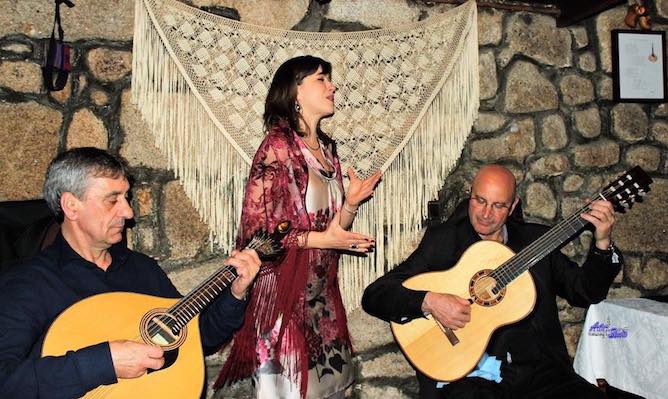Reasons to listen to Fado in Lisbon
Fado is a musical style loaded with feeling, which comes from the soul of the one who sings it. Essentially, Fado sings the feeling, heartbreaks of love, longing, daily life and achievements
It is one of the most important symbols of Portugal and recognized by UNESCO as Intangible Cultural Heritage of Humanity.
Fado is Lisbon’s urban song and something totally mandatory to know on a visit to the city. Discover the best reasons to listen to Fado in Lisbon
1. Fado was born in the lower classes
In the 19th century, Fado was sung spontaneously, on the street and in environments frequented by sailors, prostitutes and other marginal figures. Fado singer was a bully, who usually had a razor and several tattoos. The intellectual layer of Portuguese society totally repudiated Fado.
2. Fado means destiny
The word fado comes from the Latin “fatum” which means destiny. In the Lusíadas, Luís de Camões refers several times to the word fado, used with the meaning of fatality, without any connection to a musical genre.
Only in the 19th century did the word Fado begin to mean a popular song typical of the Portuguese soul.
3. Censorship almost ended fado
During the Estado Novo, in the 20th century, censorship in Portugal totally conditioned the freedom of expression of cultural activities. Fado had to be licensed and regulated, in order to be able to control the contents
4. The far left tried to silence Fado
As an activity with ancient cultural roots, the extreme left tried to silence Fado after the 25th of April, ignoring the strong democratic and popular character of the music. The consolidation of democracy allowed the recovery of Fado in the cultural landscape
5. Fado is a success story
The fado singer, as an artist, as professional, emerged in the 1930s.
Fado leaves the alleys and moves to large stages and the well-known fado houses. From the second half of the 20th century, Fado is taken to several countries around the world, and Fado singer Amália Rodrigues was, without a doubt, the great ambassador of this Portuguese musical style.
Since then, many other fadistas have followed in his footsteps, such as Maria da Fé, Carlos do Carmo, Dulce Pontes, Mariza, among many others.
João Braga also marked a strong position with regard to the renewal of fado in Portugal. He brought other great poets to the musical scene, among which, for example, Fernando Pessoa, Miguel Torga, Sophia de Mello Breyner, among many others, stand out.
Today, Fado has gained a new lease of life, with artists giving a new “dress” to this musical style, especially Ana Moura, Mafalda Arnauth, Mariza, Carminho, Cuca Roseta, Camané and Marco Oliveira.
There is no shortage of places in Lisbon to listen to Fado
In addition to the Fado Vadio venues in Bairro Alto and Alfama where amateur Fado singers show their talents to restaurant patrons, today you can hear Fado in concert halls in Portugal and abroad.
However, there are places in Lisbon with a strong tradition of Fado where you can find fadistas with some fame and a lot of talent.
Clube de Fado: Next to the Cathedral of Lisbon, an excellent restaurant with fado.
O Faia: Fado house with a lot of tradition and quality in the heart of Bairro Alto
Senhor Vinho: Located in the prestigious neighborhood of Lapa, with a lot of tradition and a stage for famous fadistas
Mesa dos Frades: Next to the Church of Santa Ingrácia, famous names and splendid cuisine
Parreirinha de Alfama: Ex-libris of fado in Alfama. traditional cuisine
Café Luso: Singing good fado in Bairro Alto since 1927.
Adega Machado: Tradition and refinement in Bairro Alto
Silence, that Fado will be sung.

